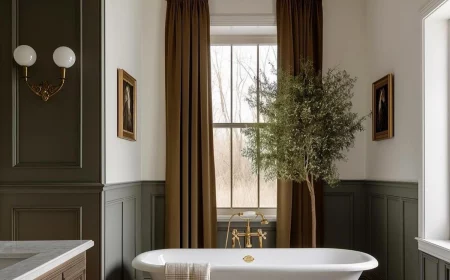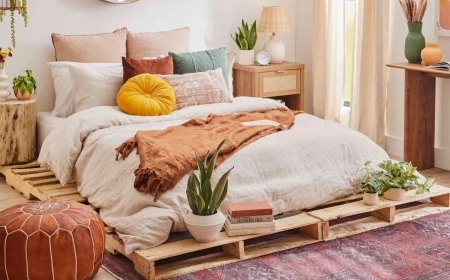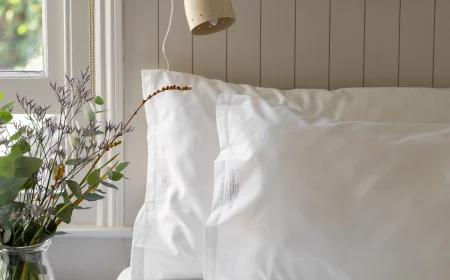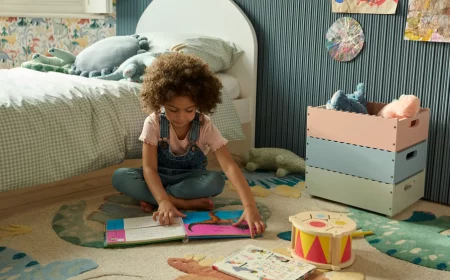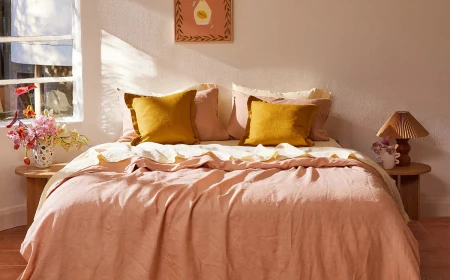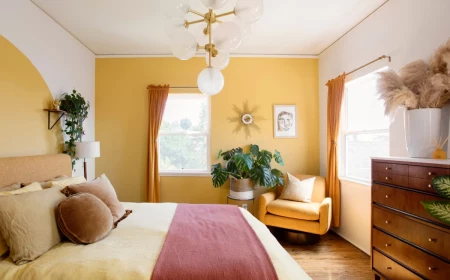Your Teen Hates Their Room? Here’s a Realistic Guide to Fixing It.
Over the years, I’ve seen it all. But some of my most memorable projects have been for teenagers. It usually starts with a frustrated parent on the phone. They see a messy, chaotic room their kid hates, and they just want it ‘decorated.’ But honestly, that’s looking at it all wrong. A teen’s room isn’t just a place to sleep—it’s their first real slice of the world, a lab for figuring out who they are, and a sanctuary from all the outside noise. Getting it right is about so much more than paint.
In this article
The biggest mistake I see parents make is designing the room for their teen instead of with them. It almost always backfires, leaving you with a stylish room that feels totally disconnected from the person living in it. The whole point is to make it a partnership. This guide walks you through the exact same process I use, focusing on function, safety, and letting their personality shine through.

So let’s build a room that actually works, lasts, and feels like home. No trendy nonsense, just real, practical steps.
Your Quick Win for Today
Before you even think about shopping, grab your teen and a notepad. Ask them one simple question: “If you could do anything in your room, what would it be?” And then, just listen. Don’t judge if they say “build a slime lab” or “have a hangout spot for six friends.” This ten-minute chat is, without a doubt, the most important step in this entire project. It’s your blueprint.
First, Let’s Get in Their Head (Just for a Minute)
Okay, why does this room matter so much to them? It’s simple, really. Teenagers are in the middle of a massive identity shift, moving away from being a ‘kid’ and figuring out what’s next. Their room is the one spot on earth where they have a bit of control, a place to try on different versions of themselves without feeling judged. It’s their inner world made real.

When a teen gets to pick their art, arrange the furniture, and surround themselves with things they love, it’s not just about making them happy. It builds their confidence and teaches them how to make decisions. The room becomes their safe haven to decompress and feel secure. Understanding this is the key that unlocks a great design.
The Game Plan: Zones and Purpose
A beautiful room that doesn’t work is a failed design. Period. So, the first real step is to plan it out together. I heard a story once about parents who surprised their daughter with a full room makeover while she was at camp. They chose this sophisticated gray and lavender theme they saw in a magazine. She absolutely hated it. It felt cold and like it belonged to someone else. They had to spend a bunch of time and money redoing things because they skipped the most important part: collaboration.

To avoid that mess, think in zones. Breaking the room into functional areas helps you make sense of the space, even if it’s tiny.
- The Sleep Zone: This needs to be calm. The bed is the anchor. If you can, place it against a solid wall where they can see the door—it’s a small thing that creates a big sense of security.
- The Study Zone: This area is for focus. Good lighting is non-negotiable here. Quick tip on ergonomics: a proper setup means their feet are flat on the floor with their knees at a 90-degree angle. The top of their computer monitor should be at or just below eye level to prevent neck strain. Simple as that.
- The Social/Relaxation Zone: Where do they hang with friends or just chill? It could be a comfy papasan chair, a small loveseat, or even just a cool rug with a pile of floor cushions.
- The Storage Zone: The closet, dresser, and shelves. We’ll dive deep into this later, but good storage is the secret weapon against clutter.
Heads up for small rooms! Feeling like you can’t fit all these zones into a 10×10 space? You’re not alone. The trick is multi-functional furniture. Think about a loft bed with a desk underneath—it’s a sleep and study zone in one footprint. Or an ottoman that opens up for storage and doubles as a seat for friends. Every piece has to earn its keep.

The Building Blocks: Color, Light, and Finishes
Once you have a layout, you can get to the fun stuff. These are the elements that create the room’s whole vibe. My advice? Spend your money on the foundational pieces and let the trendy stuff be cheap and easy to change.
Let’s Talk Paint and Compromise
Paint is the cheapest, fastest way to completely transform a room. But color seriously affects mood, so it’s worth a little thought.
A good starting point is the 60-30-10 rule. It’s a classic trick that just works: 60% of the room is your main color (walls), 30% is a secondary color (furniture, curtains), and 10% is a little pop of an accent color (pillows, art).
But what happens when your teen wants black walls and you’re picturing a nice, calm beige? This is the ultimate test of collaboration. Compromise is key. How about one dramatic, dark charcoal accent wall, and they get to choose all the bedding and art to go with it? Or, let them have their bold color, but agree to use peel-and-stick wallpaper so it’s not a permanent commitment. There’s always a middle ground.

Oh yeah, and a super practical tip: always use an eggshell or satin finish on the walls. Matte paint looks beautiful, but it scuffs if you just look at it wrong and is a nightmare to clean. Satin has a slight sheen that makes it durable and wipeable. Trust me, you’ll be glad you did when there’s a smudge of something on the wall.
Layer Your Lighting
A single, sad light in the middle of the ceiling is a recipe for a dreary room. Good design uses layers of light to make a space feel warm and functional.
- Ambient Light: This is your general, overall light, usually from a ceiling fixture. Putting this on a dimmer switch is a cheap upgrade (about $25 for the switch) that makes a huge difference.
- Task Light: This is focused light for getting things done. A good desk lamp is a must. For reading nooks, a simple floor lamp or a clip-on light works great. A quick pro tip: pay attention to light temperature. For a desk lamp, look for a neutral or cool white bulb (around 4000K) to help with focus.
- Accent Light: This is the fun stuff! String lights (or fairy lights) are popular for a reason—they add instant magic. But please, be safe. Only use low-voltage LED lights that are UL-certified (it’ll say so on the box). This means they’ve been safety tested and won’t overheat. Use wall-safe adhesive hooks to hang them, never nails or staples that could damage the wire. For that cozy vibe, go for warm white bulbs (around 2700K).

Durable Stuff That Lasts
A teen’s room gets a lot of wear and tear. Choosing durable materials will save you headaches and money.
When it comes to flooring, you’ve got a classic showdown. Carpet is cozy and dampens sound, but it’s a magnet for spills and allergens. On the other hand, hard flooring like laminate or Luxury Vinyl Plank (LVP) is nearly indestructible and super easy to clean. You can always throw down a big area rug to add softness and personality. A low-pile, tightly woven rug will be easier to vacuum and won’t show traffic patterns as quickly.
For furniture, solid wood is the king of durability, but also the most expensive. Good quality plywood is a solid, more affordable alternative. You’ll see a lot of MDF (Medium-Density Fiberboard) out there for budget pieces. It’s fine, but know that it swells up like a sponge if it gets wet and damages easily. Whatever you choose, give it a little shake in the store. If it wobbles, walk away.

DIY Projects That Look Professional
This is where your teen can really make the space their own. Here are a couple of popular ideas, but with a few pro tweaks to make them look better and last longer.
The Polished-Up Photo Wall
Instead of just taping photos to the wall or draping them on a string of lights, level up with a wire wall grid. You can find them online or at stores like Urban Outfitters or even on Amazon for about $20-$40. Securely mount the grid to the wall, and they can use mini clothespins to clip on photos, concert tickets, and art. They can even weave their (safe, LED) string lights through it for that glowy look. It looks intentional, protects your paint, and is super easy to update.
The Ultimate Fabric Bulletin Board
Cork boards are fine, but they get crumbly and full of pinholes. For a more durable and custom look, I use a material called Homasote 440 SoundBarrier. You can find a big 4×8 foot sheet at hardware stores like Home Depot for around $30. It’s made of recycled paper, holds pins way better than cork, and even absorbs a little sound.

This is a great weekend project and should only take about an hour or two.
Here’s what you’ll need:
- Homasote Board: Have them cut it to your desired size at the store. (Cost: ~$30)
- Fabric: About a yard or two of something durable, like cotton canvas or denim. (Cost: $10-$30)
- Heavy-Duty Staple Gun & Staples: A worthwhile tool to own. (Cost: ~$20)
- Hanging Hardware: D-rings and picture wire. (Cost: ~$5)
- Total Project Cost: Around $65-$85 for a huge, custom board.
To make it, just lay your ironed fabric face down, place the board on top, and pull the fabric taut around the back, stapling as you go. Fold the corners neatly like you’re wrapping a present. The result is a high-end-looking piece that perfectly matches the room.
The No-Regrets Accent Wall
Peel-and-stick wallpaper is a game-changer for renters or anyone scared of commitment. But for a good result, the wall prep is everything. The wall has to be clean, dry, and SMOOTH. If your wall has that bumpy ‘orange peel’ texture, the wallpaper won’t stick well and will look cheap. You’ll need to smooth it out first. If you’re not comfortable skim coating a wall yourself (and to be frank, it’s a messy art form), this is a perfect small job for a handyman. Expect to pay around $150-$300 for them to prep it for you—worth every penny to avoid the headache.

Storage: The Secret to a Clean(ish) Room
Let’s be real: no room will ever look good if it’s buried under a mountain of clothes and clutter. The goal of storage isn’t just to have it, but to make it so easy to put things away that they might actually do it.
- Go Vertical: Use your walls! Tall bookshelves or floating shelves are great for books and collectibles. But please, you MUST anchor any tall furniture to the wall. Anchor kits are cheap ($10) and easy to install. It’s a non-negotiable safety rule to prevent dangerous tip-over accidents.
- Under the Bed: This is prime real estate. Simple rolling bins work, or you can find bed frames with built-in drawers. Hydraulic lift-up beds are amazing, offering a giant hidden space for stuff they don’t need every day.
- Double-Duty Furniture: Look for pieces that work twice as hard. A storage ottoman holds blankets and acts as a seat. A headboard with built-in shelves can replace a nightstand.
- Rethink the Closet: That single rod and high shelf? So inefficient. You can double your usable space with a modular system from places like IKEA (their BOAXEL system is a great, affordable start, and you could outfit a whole closet for $150-$300). A mix of double-hung rods, drawers, and shelves is a total game-changer.

How to Future-Proof the Room
A 13-year-old’s favorite band is very different from a 17-year-old’s. So how do you design a room that grows with them? It’s simple: invest in the boring stuff, and let the fun stuff be cheap.
Spend your money on a classic, well-made bed frame, desk, and dresser in a neutral finish like wood or white. These are the backdrop. Then, let their personality explode in the things that are easy and affordable to swap out: bedding, pillows, posters, rugs, and desk accessories. This approach respects who they are now, while giving them the freedom to become who they’ll be next.
A Final Word on Safety
As you get started, keep safety at the top of your mind. Beyond anchoring furniture, be smart about electricity. If you need a new outlet, that’s a job for a licensed electrician. And when you’re painting, look for Low-VOC or Zero-VOC paints for better indoor air quality.

Know your limits. While these projects are fun, if you’re looking at anything that makes you nervous, it’s always smarter and safer to call a pro. This whole process is a fantastic chance to connect with your teen. By planning together and focusing on what really matters, you can create a space that not only looks amazing but actually supports them as they grow.
Inspiration Gallery



Beyond the main ceiling light, think in layers. Task lighting, like a flexible desk lamp for homework, is crucial. Then add accent lighting—think LED light strips behind the headboard or desk (Govee is a popular and affordable brand) to create a vibe. This combination gives them total control over the room’s mood.



- Vertical space is your best friend. Tall, narrow bookcases take up minimal floor space.
- Under-bed storage boxes with wheels are perfect for stashing away seasonal clothes or extra bedding.
- A pegboard system, like the SKÅDIS from IKEA, is a versatile way to organize everything from headphones to art supplies.



The single most impactful change is paint. Don’t be afraid of bold choices. A deep navy, a moody green, or even a single black accent wall can feel sophisticated and cozy. For durability against scuffs and scrapes, consider a high-quality matte finish like Benjamin Moore’s Scuff-X.


Studies show that the blue light emitted from screens can disrupt a teenager’s natural sleep cycle.
This makes their bedroom’s function as a sleep sanctuary more important than ever. A non-negotiable item? Quality blackout curtains or blinds to create a truly dark environment that encourages rest.



If space allows, help them create distinct ‘zones’ for different activities. This simple act can make the room feel larger and more functional.
- Study Zone: A clear desk, good lighting, and organizers for supplies.
- Sleep Zone: Keep it simple. A comfy bed, a nightstand, and soft lighting.
- Chill Zone: A beanbag chair, a soft rug, or floor pillows for hanging out with friends.



Their favorite band or aesthetic changes every six months. How do we design a room that lasts?
The key is to invest in neutral, timeless core furniture—a simple bed frame, a classic dresser. Let their personality explode in the accessories: bedding from a place like Society6 that features thousands of artist designs, posters, pillows, and rugs. These are easy and relatively inexpensive to swap out as their tastes evolve.


Removable Wallpaper: Offers incredible patterns and textures, perfect for a statement wall. It’s a commitment-free way to try a bold look, and brands like Chasing Paper or Tempaper make it easy to apply and remove.
Paint & Decals: More budget-friendly and allows for total creative freedom. Wall decals from Etsy can add personality that’s just as easy to remove as temporary wallpaper.
Often, the best solution is a combination of both.



A 2017 study found that personalizing a workspace increases productivity and a sense of well-being.
The same principle applies to a teen’s room. When they have a hand in creating their space and can display things that matter to them—from concert tickets to their own artwork—they build a stronger sense of ownership. A happy side effect? They might just be more inclined to keep it clean.



- It creates an instant focal point above a bed or desk.
- It provides a customizable canvas for photos, art, and mementos.
- It’s a low-cost project with a high-end designer look.
The secret? A simple grid of metal picture hangers or a cork tile wall. This allows for endless, damage-free updates.


Don’t underestimate the power of a great rug. It anchors the furniture, adds a dose of color or pattern, and provides a soft spot for lounging on the floor. For a teen’s room, practicality is key. A washable rug from a brand like Ruggable is a game-changer, making spills and stains a non-issue.



What if their hobby is gaming and the setup looks messy?
Embrace it as a design feature. First, tackle cable management with sleeves or raceways to bundle wires neatly. Invest in smart RGB light panels like Nanoleaf to create an immersive backdrop that doubles as modern art. A cool headphone stand and a dedicated spot for controllers can turn tech clutter into a curated display.



The Desk Reality Check: Before you buy a traditional desk, ask how they *actually* do their homework. Many teens prefer working on their bed or in a comfy chair. A sturdy C-shaped side table that can slide over their lap or a portable lap desk might be a more practical and space-saving solution.


Did you know the average teenager has dozens of posters, photos, and clippings they want to display?
Forget damaging the walls with tape or tacks. Use Command Poster Strips for a damage-free solution. For a more designed look, create a large-scale gallery wall using a mix of cheap frames from a store like Michaels or IKEA.



A full-length mirror is a non-negotiable for most teens. It’s not just for checking their outfit; it’s a design trick that makes any room feel bigger and brighter by reflecting light. The IKEA HOVET is a modern classic, but you can also find unique arched or vintage-style options that lean against the wall.



They want to bring in their skateboard/guitar/sports equipment. How do I stop it from just becoming clutter?
Turn their gear into wall art. A simple, sturdy wall mount for a guitar or a set of minimalist wall racks for a skateboard or snowboard clears floor space and celebrates their passion. It’s functional decor that tells a story about who they are.


Open Shelving: Ideal for the teen who loves to curate and display their favorite books, collectibles, or plants. It encourages organization but requires regular dusting.
Closed Storage: A lifesaver for the teen who prefers to hide their mess. Think dressers or cube systems like IKEA’s KALLAX with door or drawer inserts. It creates a calmer, more minimalist look.
A mix of both is usually the perfect compromise.



According to Etsy’s 2023 trend report, ‘dopamine decor’—using cheerful colors and items that bring joy—is on the rise.
This is the perfect philosophy for a teen’s room. Encourage them to pick items that genuinely make them happy, whether it’s a neon sign with their favorite saying, a mushroom-shaped lamp, or a pillow that looks like a slice of bread. It’s about personality, not perfection.



- A cozy, private nook for reading or listening to music.
- An extra seat for when a friend visits.
- A designated spot to decompress away from screens.
The secret? Even if you don’t have space for a full armchair, a large floor cushion, a hanging chair, or a soft papasan can create a dedicated ‘chill zone’.


Look up! The ceiling is a massive, underutilized canvas. Painting it a dark, moody color can make the room feel incredibly cozy and den-like. For a less permanent option, applying glow-in-the-dark star decals or even removable wallpaper can add a huge ‘wow’ factor.



A single, central ‘charging station’ can instantly eliminate 90% of the visible cord chaos.
- Find a desk organizer with a built-in phone stand and USB ports.
- Use adhesive strips to mount a power strip to the back of the nightstand or side of the desk.
- Designate one drawer as the ‘tech drawer’ for all cables, power banks, and controllers.



A common mistake is buying furniture that’s too small or ‘kiddish’. They are on the cusp of adulthood. A double bed, if space permits, will last them through their teen years and into young adulthood. Opt for a desk with enough surface area for a laptop and books, not a tiny child-sized one they’ll outgrow in a year.


A single pothos or snake plant can add life to a room and is notoriously hard to kill.
Introducing a low-maintenance plant is a great way to add a touch of nature and responsibility. It adds a pop of color, can help improve air quality, and gives them something living to care for in their personal space.



Texture is just as important as color for creating a cozy atmosphere. Think about adding a variety of tactile surfaces.
- A shaggy rug for their feet in the morning.
- A chunky knit throw blanket on the bed.
- Velvet or corduroy throw pillows.
- A smooth, cool leather valet tray for keys and jewelry.



My teen has a massive clothing collection and a tiny closet. What’s a realistic solution?
Go beyond the closet. A modern, open clothing rack can be a stylish way to display favorite jackets, shirts, and shoes, treating them like part of the decor. It forces them to curate their best pieces and keeps the overflowing closet for the rest.

Splurge here: A comfortable, quality mattress. Sleep is foundational to their health, mood, and ability to focus at school. It’s the most important investment in the room.
Save here: The bed frame itself. A simple, affordable metal or wood platform bed from a brand like Zinus or a thrift store find that you can paint will do the job perfectly well.

